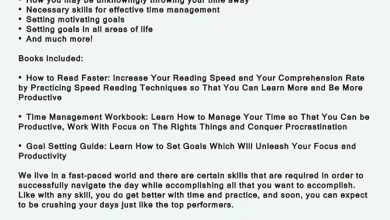Why Is Reading Important For Cognitive Development?

Reading is a fundamental skill that opens up a world of knowledge, imagination, and critical thinking. It is not only a source of pleasure and entertainment, but it also plays a crucial role in cognitive development.
Now you may be looking for an answer: Why is reading important for cognitive development?
Reading is important for cognitive development because it helps to develop language and literacy skills, social and emotional skills and can even stimulate brain development.
In this blog, we will delve deeper into why reading is crucial for cognitive development and explore ways it can benefit individuals of all ages.
How Does Reading Help With Cognitive Development?
Reading helps with cognitive development by exercising and strengthening cognitive processes such as attention, memory, and critical thinking. Daily reading, especially in childhood development, can improve language, literacy, and social skills.
It also aids in brain development by promoting the growth of neural connections and enhancing cognitive function. Studies have shown that exposure to reading and picture books in early childhood positively impacts later educational success.
Reading can also be a fun and engaging activity, encouraging children to develop a love of learning and a lifelong habit of reading. Reading into daily routines or game activities can further promote cognitive and literacy development.
Why Is Reading Important For Cognitive Development?
Reading is a fundamental skill that profoundly impacts cognitive development in children and adults alike. Here, we will explore why reading is crucial for cognitive development and how it can enhance cognitive processes and skills.
Cognitive Skills Development
Reading is a complex cognitive process involving many skills, including attention, memory, and problem-solving. By reading regularly, individuals can strengthen these cognitive skills and improve their overall cognitive development. Studies have shown that children who read regularly have better cognitive skills than those who do not.
Language and Literacy Skills Development
Reading is also crucial for language and literacy development. When individuals read, they are exposed to new words and ideas, which can enhance their vocabulary and comprehension skills. Moreover, reading can also improve writing and speaking skills, as individuals can learn proper grammar and sentence structure from written texts.
Social and Emotional Development
Reading can also have a positive impact on social and emotional development. By reading books and stories, individuals can develop empathy and better understand different perspectives and experiences. Furthermore, reading can provide an escape from daily life and offer a sense of relaxation and comfort.
Brain Development
Reading has been shown to have a significant impact on brain development. Regular reading can stimulate the brain, improving cognitive function and increasing neural connections. Studies have also found that reading can help reduce cognitive decline in older adults.
How To Enhance Reading Skills For Cognitive Development?
Reading is an essential skill that plays a crucial role in cognitive development. It helps to develop language, literacy, and critical thinking skills necessary for success in education and daily life. Here are some methods to enhance reading skills for cognitive development.
Picture Books for Young Children
Picture books are an excellent way to introduce young children to the joys of reading. They are designed to capture children’s attention and stimulate their imagination with vivid images and simple text. Picture books can enhance language and literacy skills and provide a foundation for cognitive processes that lead to lifelong learning.
Read Aloud Regularly
Reading aloud is an effective way to help children develop their reading skills. It helps them to improve their attention span, concentration, and listening skills. Parents and caregivers should read aloud to their children regularly and make it a part of their daily routine. This will enhance their reading skills and foster social and emotional skills.
Encourage Independent Reading
Encouraging children to read independently is an excellent way to enhance their reading skills. It helps to build their confidence and develop their cognitive skills. Parents can create a reading nook and provide access to various books that match their children’s interests and reading levels.
Use Games to Enhance Reading Skills
Games are a fun way to enhance reading skills. Memory games, building games, and word games can help children develop their cognitive skills and improve their reading comprehension. Parents can also use educational apps and online resources to supplement their children’s learning.
Engage in Follow-Up Activities
After reading a book, parents can engage their children in follow-up activities to enhance their cognitive development. This can include discussions about the story, retelling the story, and drawing pictures related to the story. These activities help to develop critical thinking skills and improve language skills.
Make Reading a Part of Daily Life
Parents should make reading a part of daily life to enhance reading skills for cognitive development. They can model good reading habits and encourage their children to read for pleasure. This will enhance their reading skills and foster a lifelong love of reading.
The Impact of Reading on Different Age Groups
The impact of reading may differ among different age groups. Here, we will explore the impact of reading on various age groups, including children, teenagers, and adults.
Children:
Reading is vital to children’s cognitive development, particularly in enhancing their language skills, vocabulary, and comprehension. Through reading, children acquire new knowledge, develop their imagination and creativity, and improve their critical thinking skills.
Besides, reading books helps them learn about the world, understand different cultures, and explore new ideas. Additionally, reading bedtime stories to young children is an excellent way to bond with them and create lasting memories.
Teenagers:
For teenagers, reading is an essential tool for academic success. Reading books helps improve their comprehension, analytical skills, and critical thinking. It is also an excellent way to enhance their creativity, imagination, and vocabulary.
For example, reading fiction books helps teenagers to develop empathy and emotional intelligence, which are crucial for their social and emotional well-being. Apart from that, reading books that address social issues and diverse perspectives can help teenagers become more open-minded and tolerant individuals.
Adults:
Reading has several benefits for adults, including stress reduction, mental stimulation, and cognitive development. Reading helps adults improve their vocabulary, comprehension, and analytical skills.
Moreover, reading is an excellent way to improve memory retention, enhance concentration, and reduce stress. Additionally, reading is a great way to unwind and relax after a long day, making it an essential self-care practice.
The Role Of Parents And Caregivers In Promoting Reading For Cognitive Development
As children’s first and most important teachers, parents and caregivers play a significant role in promoting reading and literacy skills in their children. Below, we will discuss the essential role that parents and caregivers play in promoting reading for cognitive development.
Creating a Reading-Friendly Environment
Parents and caregivers can create a reading-friendly environment at home by setting aside a specific reading time, creating a comfortable reading space, and providing various age-appropriate reading materials. A conducive reading environment can help children develop a love for reading and make it fun and enjoyable.
Modeling Reading Behaviors
Parents and caregivers can model reading behaviors by reading to their children, reading in front of them, and discussing what they read. Modeling reading behaviors can help children see the importance of reading and encourage them to develop a habit of reading.
Encouraging Active Reading
Parents and caregivers can encourage active reading by asking questions, making connections, and encouraging children to make predictions. Active reading helps children engage with the text, develop critical thinking skills, and improve comprehension.
Providing Support
Parents and caregivers can provide support by guiding children through difficult words, providing explanations, and praising their efforts. Providing support can help children develop confidence in their reading abilities and make them feel encouraged to read more.
Wrapping Up
This content may discuss clearly: Why is reading important for cognitive development? Reading is an essential part of cognitive development, as it helps to build knowledge, encourages critical thinking, and strengthens language skills. It can also help to foster creativity, build empathy, and increase concentration.
In short, reading is a powerful tool for developing a healthy, functioning brain. Reading books of all kinds and genres can help to create an understanding of the world and its many complexities.



